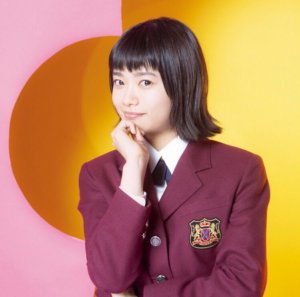
Esta resenha pode conter spoilers
"...until the skies clear."
"Mai Agare" is the 23rd asadora I've completed. Like a lot of people, the negative comments about this asadora made me hesitate to watch it. I don't think the comments are unwarranted. "Mai Agare" actually really reminds me of "Mare" and "Hanbun, Aoi," which both have similar storylines (and caused me frustration at times). However, both of these asadoras are beloved in this community so I think "Mai Agare" should also be given some slack. Major spoilers follow!The first two weeks of "Mai Agare" featuring the childhood of our heroine, Mai, are hands down my favorite part. I really loved the child actress who played Mai and I was very happy that they brought her back briefly to play Mai's daughter in the final episode. The first half of the asadora I think is very strong. It shows Mai developing a passion for airplanes and then deciding to go to flight school. It starts to go down for me when Mai decides to help her family's factory instead of becoming a pilot. I personally wasn't particularly fascinated with the 'look how screws are made' thing at first, though I started to like the factory part later on. Thankfully, the plot starts to pick up when Mai and her second love interest, Takashi (Akaso Eiji), get together. From there, I really liked the asadora again. Mai discovers her real passion and even gets to complete her original dream.
I saw some comments about people not liking the actress, Fukuhara Haruka, who played Mai. Of course, that's their opinion. But I personally really liked Fukuhara as Mai. She played a bright, almost too positive character perfectly. Anytime she was slightly annoying was really the plot's fault not hers (lol). I also just really liked Mai's personality, which made me want to continue watching even when I was getting frustrated.
Sadly, the side characters don't really stick out for me besides Mai's family and some of her friends, particularly childhood friend Kurumi (Yamashita Mizuki). I wasn't fan of her brother's, Haruto (Yokoyama Yu), "arc." I did really like Mai's flight school friends, Rinko (Yamazaki Hirona) and Kashiwagi (Meguro Ren). The latter being her first boyfriend as well. However, once flight school is over, you maybe see them a handful of times. I think this is another big problem of "Mai Agare." Only Mai herself, Kurumi, and Takashi (and to a certain extent her family) have satisfying arcs. No one else really does, which is a shame. I will say that my favorite character is definitely Mai's grandmother Shoko (Takahata Atsuko). I love her so much.
In conclusion, "Mai Agare" is not a masterpiece asadora but I still enjoyed it. It had a solid first half. I'm sure everyone who watches it will love the flight school part in particular. And it has a very solid, full-circle ending, which made me cry. Though some parts were frustrating, I realized that "Mai Agare" never got away from its theme of taking flight. I even ended up liking the secondary focuses on small-town factories and Takashi's tanka poems. (Honestly, the poems were so pretty). I'm really happy I completed this asadora after all and it helped me through a difficult loss in my life.
Esta resenha foi útil para você?
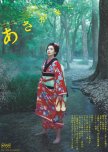
Esta resenha pode conter spoilers
"First Penguin"
"Asa ga Kita" is the fifteenth asadora I've watched. While watching the last six weeks of episodes, I realized that the story sounded familiar. Naturally, I looked up the woman whom Shirooka Asa (played by Haru) is based on. Her real name was Hirooka Asako by the way. Finally, it clicked and a pulled out the book, "Anne's Cradle: The Life & Works of Hanako Muraoka." This book serves as the basis for the 2014 asadora, "Hanako to Anne," which was also my first asadora. The author dedicates a few pages to Hirooka Asako, whom Hanako met when Asako was in her sixties and she apparently influenced some Hanako's feminist leanings. I'll include this quote by Asako, which influenced Hanako and others Japanese women of the time:"From here on, politics will be crucial. Unless we raise up female politicians active in governing this country, true emancipation for women can never be achieved. We must start by obtaining the right to choose our leaders, the right to vote, just as women in other countries have done. You must work together for the same goal."
Another Japanese feminist, Hiratsuka Raicho, who appears in the final week of "Asa ga Kita," is also mentioned in this biography. I'm including this in my review not just because it's interesting but to highlight that "Asa ga Kita" is one of the more overt feminist asadoras. It doesn't exactly "go there." For example, there's no mention of women's right to vote. And, as much as I wish it had gone there, my hat goes to it for even touching what it does. You could argue that all asadoras are feminist, but in a more sanitized way in my opinion. "Asa ga Kita" highlights the strength, problems, and progress of women during the Meiji era, a much more oppressive time period than when most asadora are set.
Speaking of time period, "Asa ga Kita" begins in 1857 and is set mostly during the Meiji era. This is a very interesting time period for Japan and really laid out the groundwork for what modern day Japan is. Also interestingly, this is the earliest time period for an asadora. (NHK appears to reserve this time period for their taiga dramas instead.) The asadora starts off with traditional kimono and topknots, and by the end there are dresses and cropped hairstyles everywhere. It's an interesting dichotomy and serves as a good example for the changes of the era. Moving on from history...
The best part of "Asa ga Kita" are the characters, of course. Haru plays the pioneering businesswoman Shirooka Asa, a tomboy who questions why women can't learn. Miyazaki Aoi plays her sister Hatsu, a traditionally feminine girl with a hidden strength. Hatsu is often the secondary main character, but the narrative smartly recognizes when her story isn't as interesting as Asa's and we won't see her for a while. Nevertheless, we follow her throughout her life and her romance with her husband Sobei (Emoto Tasuku) is very compelling. Next, we have Asa's husband Shinjiro, a man who prefers to indulge in his various hobbies instead of participate in the family business. Even though, he sounds like a "useless" man, he is played perfectly by Tamaki Hiroshi, giving him both humor and humanity. As a husband, he is always supportive of Asa which only makes him more endearing.
Asa's and Shinjiro's only daughter, Chiyo (Koshiba Fuka), comes off as very annoying at first, being the opposite of Asa but also not seeing the value of someone like Asa. I thought she was going to fall into the trap of other asadora children at this point. Thankfully, the writers have here come to appreciate Asa though Chiyo remains the complete opposite of her nonetheless. The final character I'd like to talk about is Godai Tomoatsu (based on a real figure and played by Dean Fujioka. He is what every second male lead should be. Someone who doesn't impose his feelings on the FL and just supports her from afar. Honestly, he had my heart beating fast at certain points. There are a plethora of other side characters who are all endearing in their own way.
"Asa ga Kita" surprisingly has four romantic couples to get invested in. Asa and Shinjiro are the best of course and are now my favorite asadora couple ever. Hatsu and Sobei are super sweet together despite their rough start. Kisuke and Fuyu seem kind of mismatched but I couldn't help rooting for them. I was a bit sad that Fuyu doesn't appear again after their marriage, but I suppose that Kiyohara Kaya (see Natsuzora, Okaeri Mone) just appeared too young at the time. Lastly, there's Gansuke and Ume, a couple that doesn't need to be together to know that they love each other. Honestly, I felt very spoiled with the amount of couples in this one.
Okay, this review is getting to long so let's wrap it up. "Asa ga Kita" includes everything you could want in an asadora and then some. I recommend this to old and new asadora watchers alike. (I hope I didn't spoil it too much.) If you're looking for a next watch after this one, I recommend the 2024 asadora "Tora ni Tsubasa" which explores similar feminist ideas as "Asa ga Kita" but in a more "in your face" way. Happy watching!
Esta resenha foi útil para você?

A word-for-word adaptation
I read "Three Body Problem" earlier this year in preparation for the Netflix adaptation being released (though I haven't seen it yet since I'm waiting for my dad). I discovered that there was already a Chinese drama based on it and decided to check it out, though Chinese dramas aren't usually my favorite. I really wanted to like this drama since it got such good reviews on here... but the last five episodes almost killed me from boredom.What I didn't like:
1) The drama is essentially a word-for-word adaptation of the book. While I appreciate the production sticking close to the book, it got boring pretty quick once I realized that I was just *watching* the book this time lol.
2) The character of Mu Xing was added for the production and was just a plot device. They stuck so close to the book that they had a hard time actually adding anything new.
3) They removed the *MOST* pivotal scene from the book, probably because of censors. This is unfortunate as I think it justifies Wen Jie's actions a bit more, though thankfully doesn't mess with it too much.
4) The editing is strange like most Chinese dramas. It has to be shot almost like a movie so the episodes are kind of cut weird, particularly in the episodes where characters are telling long stories. The sound editing was also not up to par
What I did like:
1) The characters are given more personality than in the book. I've read others say that Liu Ci Xin's characters are a bit bland and I'm inclined to think the same. This drama thankfully gives more insight into characters like Wang Miao, Ding Yi, and Yang Dong.
2) The acting by everyone is fairly competent though Chen Jin and Wang Zi Wen deserve extreme praise for their role as Ye Wen Jie. They made me look forward to the backstory episodes even if the story became somewhat meandering.
3) I really liked the two scenes that set up the next season featuring "The Dark Forest" protagonist Luo Jie. I'm really looking forward to it since I think that book is a lot better than the first one.
4) The music was surprisingly really good and perfectly set the tone of the drama.
I recommend this drama to those who love sci-fi but have not read the book. Those who have read the book will not get much out of this sadly. I will watch the sequel if and when it is released. I think it has better potential than this one. I'm giving it a 7.5 because I did think it was worth watching for me personally and it was able to get across the ideas in the novel with simplicity.
Esta resenha foi útil para você?
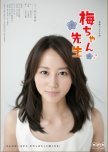
Esta resenha pode conter spoilers
"I'm Ume which will blossom even in the cold"
"Umechan Sensei" is my twelfth asadora and what a delight it was. [I've been very lucky with my last three picks; let's hope this continues~.] This asadora is set in Tokyo just after WWII like "Natsuzora," which I had just finished. It follows Umeko (played by Horikita Maki) as the somewhat hapless heroine of the story as she embarks on journey to becoming a doctor. Umeko is just a wonderful heroine. She's kind and warm, and her haplessness allows for some very funny moments. It's fun to watch her gradually develop into a responsible adult and get further in career, though her core character always remains. Her development also mirrors the redevelopment of Tokyo and Japan post-war.Besides Umeko, the other highlight of this asadora is the supporting cast. My personal favorite is Takahashi Katsumi as Umeko's father, Kenzo. He such a grump and a bit scary at first, but you eventually realize that he's just a teddy bear inside. My favorite moment of him is in the very last episode. Then there's Umeko's siblings Takeo (Koide Keisuke) and Matsuko (Mimura Rie), who both have their own arcs in the story. Umeko's mother (Minami Kaho) and grandmother (Baisho Mitsuko) could have had more to do in the story, but I loved them nonetheless. There's a part with Umeko's mother late in the asadora that I especially loved. And, of course, there are Umeko's classmates, colleagues, and neighbors. So many good characters that I can't name them all lol.
Interestingly, Umeko has two love interests which feels a bit rare for an asadora, especially because I couldn't tell who she was going to pick until it happened. I actually really liked both of them. One of them is fellow doctor Matsuoka Toshio (Takahashi Mitsuomi). He's just a fun character with his analytical way of thinking which often puts him at odds with others. His and Umeko's break-up was sad but I think fits with his character. The "real" love interest is Umeko's neighbor and childhood friend Yasuoka Nobuo (Matsuzaka Tori). He kind of goes under the radar for much of the asadora though he and Umeko have a couple of "moments" early on. Nobu starts to really shine once Matsuoka leaves. There were some really romantic scenes between him and Umeko, such as the proposal scene. Nobu also gets nearly as much character development as Umeko.
"Umechan Sensei" is a great asadora from start to finish. It becomes a little slow near the very end, but the final episode closes out perfectly so I'll forgive it. Some of my few complaints are that Umeko's siblings aren't given much to do once their arcs are finished, Yayoi's and Yamakura's story isn't finished [it appears that it continues in a special episode which I can't find :(], and I wish that the narrator was present more often. These are very minor complaints though. I'd recommend "Umechan Sensei" to anyone as I think this is a very appealing asadora to beginners and veterans alike.
Esta resenha foi útil para você?
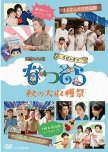
Natsuzora Spin-off: Aki no Dai Shukakusai
1 pessoas acharam esta resenha útil
Esta resenha pode conter spoilers
A fun watch but easily skippable
Popular asadoras will occasionally receive a spin-off special after they finished airing. "Natsuzora" is one of those popular ones, which is no surprise if you've seen it. These specials rarely get subbed by fansubbers so I'd like to think ECOTV Subs for taking their time to sub it. You can join their live journal to access the subs.The special is split into two stories. The first focuses on Toyo Obaa-chan's voice acting adventure in Tokyo. As unrealistic as it was, I think a fun time was had by all and I did cry at the end. The second is about the "Tokachi's Wives Bragging Contest." Basically, the men of Tokachi have to profess their love for their wives in the contest. It mostly focuses on Yukijiro and Yumiko, whom have a marital spat at the beginning of it. I thought it was funny that Kikusuke suddenly had a wife out of nowhere, but his song actually made me cry. Does this drama just make me emotional? Lol.
My sole complaint about this special is that Natsu isn't in it much. However, I will concede that her reduced role probably helped the side characters have some nice shining moments. I recommend watching this if you really liked "Natsuzora" because it's nice to revisit this world once more. I will admit that you're not missing much if you decide skip it. It feels like those extra chapters in shojo manga after the final chapter. It's nice to know what the other characters are doing, but not necessary.
Also, the special includes a top ten scenes that were popular on social media and three unaired scenes. This was a nice touch and rewatching these scenes again made me cry (again lol). An interesting note that Natsu and Jii-chan essentially are hosts for the special. There's a running bit with Jii-chan declaring that he's not dead. Funnily enough, in the last scene with Jii-chan in "Natsuzora" I hadn't realized that that was him dying (lol). The special makes it clear that he's dead T_T.
Esta resenha foi útil para você?
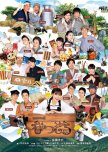
Esta resenha pode conter spoilers
Pioneering Spirit
"Natsuzora" is the eleventh asadora that I have watched. It is the culmination of last five asadoras that I have watched. To explain: "Natsuzora" is the landmark 100th asadora to air. As such, NHK invited a bunch of past asadora heroines to make appearances from supporting to minor cameos. I watched "Oshin," "Dondo Hare," "Dandan," "Manpuku," and "Chiritotechin" specifically for this reason while I had already watched "Jun-chan no Ouenka." (I would've watched more but these are the only ones with English subs currently.) Watching these aren't really a prerequisite to watching "Natsuzora," especially since some of the actresses have a blink and you'll miss it cameos. Personally, I think fully immersing myself in the asadora format for the pass few months helped me really enjoy "Natsuzora."Now that being said, I think "Natsuzora" is actually the perfect first asadora for someone just beginning to watch. It has all of the elements that people like particularly in an asadora with wonderful animation segments to boot. Just watching "Natsuzora" would give someone the perfect impression of what an asadora is supposed to be.
Hirose Suzu as Natsu is a great heroine and wonderfully nuanced. Natsu, I believe, is one of the few asadora heroines to be an orphan. This creates some great drama with her finding her siblings which runs throughout the drama. "Natsuzora" also boasts a great supporting cast with Kusakari Masao as "Jii-chan," Natsu's adoptive grandfather, being the standout. I particularly seeing Yamaguchi Tomoko (from "Jun-chan no Ouenka"), Higa Manami (from "Dondo Hare"), and Kanjiya Shihori (from "Chiritotechin") now in supporting roles. Then there were the actors I recognized from "Hana Yori Dango" productions, Nakagawa Taishi, Matsushima Nanako (also an asadora heroine from "Himawari"), and Fujiki Naohito. A quick glance at the cast list and I see a lot of people from previous asadoras. Honestly, NHK went all out with the casting.
"Natsuzora" carries the theme of the "pioneering spirit" shown with the dairy farmers of Hokkaido and later with Natsu entering into the new animation industry. Eventually both intersect when Natsu has the opportunity to work on an animated series reminiscent of the "World Masterpiece Theater" anime series (and specifically referencing "Heidi, Girl of the Alps"). Interestingly, Natsu is based on the animator Okuyama Reiko but I would say very loosely, particularly in regards to her early life. Natsu's love interest is based on Ghibli director Takahata Isao and there's even a reference to his masterpiece "Grave of the Fireflies." There's a handful of others also based on real-life people.
Watching "Natsuzora" felt like receiving a warm hug. In many ways, it reminded me of my first asadora "Hanako to Anne." Both asadoras gave me the feeling of wanting to stay in that world full of characters that I love dearly. Somehow, it's harder to stay things about a drama I really liked. I just really hope that more and more watch this asadora as it's very close to being perfect.
Esta resenha foi útil para você?
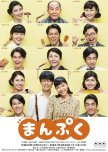
Esta resenha pode conter spoilers
"As long as we're alive, there's hope"
"Manpuku" is the ninth asadora that I've completed so far. I'd actually downloaded and started this drama early on during this journey, but I ended up putting it on hold because I was tired of WII stories at the moment. Week 2 was also surprisingly heavy for this asadora being mostly a comedy. I was able to pick it back up pretty easily and honestly the WII part wasn't as long as I was expecting. "Manpuku" was also one of the asadoras I watched for "Natsuzora" as Sakura Ando has a small voice cameo in it. Another note: Sakura Ando previously appeared in my [thus far] favorite asadora "Ohisama."Now on to the meat and potatoes. "Manpuku" is one of those "couple" asadoras, meaning that a couple are the lead characters instead having just a female lead. As such, I think the drama has a very different flavor to most other asadoras. Fukuko (Sakura Ando) doesn't have an aspiration like the traditional asadora heroine. Instead, she's there to support her wacky inventor husband Manpei (Hiroki Hasegawa). I don't think this is actually a bad thing but it's not what people are typically expecting from an asadora. As a couple, they're very cute together though Manpei irritates me a bit. While it's obvious how much he needs Fukuko, it's not exactly obvious why Fukuko needs him. But I suppose there's no logic in love [lol]. Anyway, what I'm trying to say is that the dynamic is one-sided. I've heard similar complaints about "Gegege no Nyobo" [which I haven't watch], and ironically Nao Matsushita appears in both.
"Manpuku" is a fictionalized account about the inventor of instant ramen, Momofuku Ando. Everyone has eaten instant ramen and, being American, I didn't know for a long that there was a different way to eat ramen. I wasn't immediately sold on this premise, but I was surprised how I invested I got once we finally got around to it (a little over halfway through I believe). The process of inventing something was shown in the previous asadora "Hanbun, Aoi," but "Manpuku" really goes into it and several times over since Manpei gets involved in numerous endeavors. If you can believe it, I shed some tears at the end over the invention of Cup Noodles.
As for the side characters, my favorite is Fukuko's mother, Suzu-san (Keiko Matsuzaka). I love her so much. She in my opinion has the best comedic moments in the drama, particularly when she's paired with Fukuko or Manpei. The rest of the cast was also great, but by the last few weeks it seemed that the writers were unsure of what to do with them. For example, Fukuko's niece Taka (Yukino Kishii) graduates from college during the eight-year time skip but simply becomes a housewife and mother afterwards. There's nothing wrong with being a housewife but I just thought it was boring that we only see her and her mother Katsuko (Nao Matsushita), Fukuko's sister, just sitting around the TV. I also have a small complaint about Taka's sister, Yoshino (Mai Fukagawa). They made a big deal about which man she was going to marry, but didn't show it playing out. Instead, they just revealed it randomly after the final time-skip.
All-in-all, I don't have many complaints about "Manpuku." I think it's a solid comedic asadora and just an all-around good time. Not *the* best, of course. It's a little towards the end, and Manpei and Fukuko have just a few too many hardships. However, I believe most asadora fans will enjoy this one and it being a comedy makes it easy for a beginner to watch. A final bit of trivia: "Manpuku" ends in 1971 and mentions the Osaka world's fair and the previous asadora "Hanbun, Aoi" begins in 1971 and also mentions the world's fair.
Esta resenha foi útil para você?
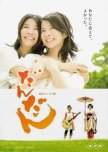
Esta resenha pode conter spoilers
"Song of Life"
"Dandan" is my eighth asadora thus far. I chose it because of the twin angle as well as Mikura Mana appearing in "Natsuzora," which I'm planning to watch soon. "Dandan" has a harsh score of 6.7 on MDL. To be fair, it's only been rated by eleven people but it doesn't feel very balanced. "Dandan" isn't bad; it's just not the best asadora anyone has every seen.The premise for this asadora is basically "The Parent Trap" so it's a bit derivative. However, I enjoyed this sort of "reimagining" of the premise and it was initially what hooked me into watching it. Two girls, Megumi (Mikura Mana) and Nozomi (Mikura Kana), meet by chance as if fate is pulling them towards one another. Megumi is an ordinary high school student living in Matsue, while Nozomi is a maiko (apprentice geisha) living in Kyoto. I think both girls have interesting, realistic reactions to finding out that their twins. Some of their family members reactions may seem harsh, but I also think it's realistic from the point-of-view of Japanese culture.
Megumi initially wants to become a professional singer, but then lands on deciding to be a caretaker [i.e. looking after the elderly at retirement homes]. She moves to Kyoto to go to college and starts living with Nozomi and their mother (Ishida Hikari). Ironically, this not only knocks Nozomi off her life's course, but also the story. After a lot of badgering from Ishibashi (Yamaguchi Shogo), the girls become twin singers in the same vein as The Peanuts (if you've seen Mothra, you know them). Strangely, their time as actual singers is very short compared to the build-up. Megumi almost immediately disbands the duo as soon as it grows in the wrong direction. Nozomi tries for a while on her own, but eventually goes back to being a maiko. As such, this whole middle section of the drama ends up feeling pointless.
The last section of the drama was what they should've been doing with the whole dram in my opinion. Megumi decides to become a nurse on top of a caregiver. Her love interest, Ishibashi, also leaves music and decides to become a doctor. Nozomi goes from being a maiko to a geisha. Her love interest is her former bandmate and manager, Kota (Kuboyama Tomohiro). His earnest admiration of her and willingness to watch to support her from afar is just sweet. I would've rather watch more of this even if it had the twins being in separate cities for most of the time.
Honestly, even the singing career path had its potential. What I'm frustrated with is the noncommitment to either storyline. "Hanbun, Aoi" comes to mind since it had a similar problem, but it was able to stick the landing better in my opinion thanks to the supporting cast. "Dandan" has some lovely side characters, but two of the male characters are particularly frustrating. Additionally, while I did cry, it wasn't able to hit all of those emotional notes I love so much in the last week.
Now that I'm done complaining. I will talk about its good points. Mana and Kana are wonderful as the heroines, though I preferred Kana's Nozomi to Mana's Megumi. Both heroines are played beautifully nuanced and I loved how their facial expressions perfectly encompassed their characters feelings at any given time. The female side characters were almost all amazing. I loved them all. I particularly found the girls' grandmother (Mitsubayashi Kyoko) to be poignant at this time for me. The girls' mother (Ishida Hikari) and Megumi's mother (Suzuki Sawa) were also stand-outs. And finally, the best point of the asadora is the music. It was all so good from the theme song to all of the songs that the girls sing throughout. "Ue o Muite Aruko," "Akai Sweet Pea," "M," etc.
So, in conclusion, I would argue that "Dandan" is worth watching, especially if you're an asadora enthusiast. I probably wouldn't recommend it to a beginner because it won't hook them in immediately. I enjoyed my time with this asadora and I will be singing the music it introduced me to for a long time.
Esta resenha foi útil para você?
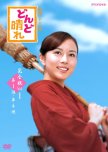
Esta resenha pode conter spoilers
A place to go back home to
"Dondo Hare" is the seventh asadora that I've completed. I first chose it at random since it was one of several asadoras I currently have downloaded on my computer. I was also curious about watching a "modern" asadora (i.e. one taking place around the year it aired). I then noticed that the lead actress appears in "Natsuzora," which is the 100th asadora and references older asadoras. That's when I really committed to watching it (I'll be watching "Dandan," "Chiritotechin," and "Manpuku" next for the same reasons). "Dondo Hare" was a surprisingly easy watch, excepting a couple of the storylines. I was really able to just breeze through it.The drama follows Natsumi (played by Higa Manami) as she trains to become a proprietress for a traditional Japanese inn, called Kagamiya, which her fiancé Masaki (Uchida Asahi) decides to take over. Masaki's aunt Tamaki (Miyamoto Nobuko) is the current proprietress and wants her son Shinichi (Azuma Mikihisa) to take over. However, the head proprietress Katsuno (Kusabue Mitsuko) wants Masaki instead. This family conflict pushes the plot forward for the majority of the drama.
The first two weeks of "Dondo Hare" set up the drama well. I really liked the weeks that follow since it had a slice of life vibe as every week had different guest for Natsumi to help. The tone shifts, however, when Natsumi's meddling causes her to quit her training. Of course, she goes back but the tone never returns to what it was. From then, there seems to be a series of neverending problems for Natsumi or the inn. At one point, the poor girl has two "rivals" to contend with. The drama's best feature is its sense of family and I wish it had focused on that instead of just throwing one problem after another at them.
Natsumi is a good heroine and her characterization helps the drama when the writing gets weaker. Her naivete may be a tad annoying at sometimes, but (like the drama says) her ability to "believe" in people is also her strong point. She seems like the typical hard-working, bright smile heroine at first. Natsumi, however, is not just that and shows a wide-range of genuine emotion. Her and Masaki's relationship could've been stronger. Since they were engaged before the story starts, it feels that the writers phoned them in just a bit. Instead Natsumi's relationships with Katsuno and Tamaki are much more interesting and nuanced. I also just want to add that I liked all of the supporting characters. Everyone at the inn felt like a family.
Now in conclusion, I recommend "Dondo Hare." It's not the best asadora, of course. But it's a fun, easy watch. I got tired of the constant troubles, but Natsumi makes these times easier to get through. The final week of episodes could've had more happiness, instead of hastily trying to wrap up the final conflict. The very final episode, however, was worth it. I definitely cried T_T At the end, I felt just as attached to Kagamiya as all of the characters. It felt like (as the drama says) a place to go home to.
Esta resenha foi útil para você?
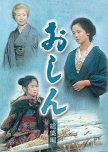
Esta resenha pode conter spoilers
"A mother's worries are never over."
"Oshin" is the sixth asadora that I've watched. Like "Ohisama" and "Hanako to Anne," it has been on my radar for a long time. It's considered a classic after all. But, like most people, I thought the 297 episode count was daunting. However, after I decided to go all in with asadora dramas, I knew I wanted to watch "Oshin" early on in this journey. How I approached "Oshin" was that I watched in sets of 2 to 3 weeks at time and then switched to watching "Ohisama" for 2 to 3 weeks. I obviously finished "Ohisama" first with this method. I think this helped "Oshin" feel less daunting at times and helped keep my interest up, instead of giving me burn-out.The structure of "Oshin"'s story is similar to "Ohisama," being presented as older Oshin (Nobuko Otowa) telling her life story to her grandson Kei (Goro Ohashi). There is an extra layer of mystery as we as an audience are unaware of why she has suddenly left home for her nostalgia trip. The reason is not actually revealed until the final two weeks of episodes.
The first few weeks of "Oshin" covers Oshin's tough childhood during the Meiji period. She is played by an unforgettable young actress Ayako Kobayashi. Many of the lessons she learns during her childhood will be brought up continuously throughout the rest to the drama. Personally, these episodes are kind-of hard to watch. Oshin is the daughter of a sharecropper and sent out to work at only seven-years-old. After several bumps in the road, she finds employment at Kaga-ya. Here we finally meet some supportive adults and Oshin makes a lifelong friend in Kayo (Terumi Azuma). The story then skips to when Oshin (now played by Yuko Tanaka) is sixteen and meets her first love Kota (Tsunehiko Watase), an advocate for the farm labor movement who is constantly hounded by the police. These are the three most important characters of the story.
It will take too long to summarize the rest of the story so I'll just talk about some of the characters. Oshin's husband, Ryuzo (Shiro Namiki), is one of the most frustrating characters I've encountered in fiction. But this series has a lot of similarly frustrating characters: Oshin's father, her son Hitoshi, her mother-in-law Kiyo, her daughter-in-law Michiko, her brother Shoji, and her sister-in-law Tora. The writer, however, does something really interesting with all of these characters. She makes you dislike them so much that you're just wishing that they worse will befall them, but then she'll find a way for you to sympathize with them. These characters also make it easy to appreciate the nice people like the people of Kaga-ya, Oshin's hairdressing teacher, the yakuza member Ken, Ryuzo's servant Geneimon, and Kota's aunt Hisa. I love all of these people.
A little less than half-way through the drama, Oshin was at her in-laws in Saga. This storyline went on for a long time and is hands down the hardest part to get through. I took several breaks during this time and I recommend doing the same. This part sets a lot of context for when Oshin herself becomes a mother-in-law and adds a great bit of irony.
The latter half of the drama (when Oshin is played by Nobuko Otowa) is probably my favorite. I was finally able to relax and just watch Oshin set up her supermarket business. Her son Hitoshi was admittedly annoying, but he's surprisingly layered as a character. Her other children were great for the most part. I will say that the constant changing of actors as these characters aged was a bit confusing. They should've stuck with the old age make-up and grey hair. Kota's actor is never changed by the way; he just gets a mustache that turns greyer with time lol.
I had a great time watching this, even with all of the hard-to-watch parts. Asadora dramas are a truly a unique viewing experience. I've never quite felt like I knew characters so well. The story starts when Oshin is seven and then ends when she is 83 with very few time skips. An amazing epic drama. I see why it's considered a classic, especially within the context of the 1980s. For modern viewers, I encourage to exercise caution unless you're interested in different cultures and time periods. This is not like asadora dramas of today and may have a lot of things you don't like. Compared to something like "Hanako to Anne" (same time period), "Oshin" is a harsh watch.
Esta resenha foi útil para você?

Esta resenha pode conter spoilers
"All women are like the sun."
"Ohisama" is the fifth asadora that I have completed. The drama has been on my radar for a long time since it stars Mao Inoue, whom I love from the "Hana Yori Dango" series. However, I was always scared of the length of asadora series. Thankfully, I have gotten over that and quickly put "Ohisama" on my plan to watch list. I was actually surprised by how much I liked "Ohisama." It even rose to become my favorite asadora, beating out my beloved "Hanako to Anne" by a slight margin.The drama uses an interesting framing device similar to "Oshin" (which I was watching concurrently). It opens with a modern-day (2011) housewife, Fusako (Yuki Saito), meeting an elderly woman, Yoko (Ayako Wakao), who asks if she wants to hear her story. The story then frequently returns to present-day Yoko and Fusako as the drama unfolds. Ayako Wakao also provides the narration. I think both devices combined enhanced the story-telling experience, especially for a drama set during World War II. Subtle hints of the fate of characters were given either through the narration or a mention/appearance in the modern day. This helped keep the sometimes sad tone of the series down in my opinion.
Yoko's story starts in 1932 when her family moves to Azumino, a village in Nagano Prefecture. Her mother, Hiroko (Tomoyo Harada; whom I loved in "Hanbun Aoi") has long been sick and has chosen this place to die essentially. [Only the first week and I'm sobbing.] Yoko losing her mother at the young age of ten shapes the entire rest of the story, even to the final seconds. Her mother gives her advice to be "like the sun" (her name uses the character for the word for sun). Yoko from on frequently tries to be the sun for those around her. Older Yoko uses the quote "All women are like the sun" to Fusako much later in the drama and I just thought was such a beautiful thought.
The story then shifts to Yoko's high school days with her best friends, Machiko (Maiko) and Ikuko (Hikari Mitsushima). These two are some of the most important people in her life besides her father, elder brothers, and later on her husband, daughter, and in-laws. Yoko becomes a teacher after graduating (This will be her main ambition for the majority of the series). Unfortunately, it is now 1941, the year Japan bombed Pearl Harbor. If you're familiar with the Japanese retelling of the war, you'll see the typical "Japan cannot lose" rhetoric the common people were fed at the time. Yoko, unlike in the previous asadoras I've seen ("Hanako to Anne" and "Junjo Kirari"), is not even slightly politically inclined one way or the other. She is a little bit disturbed by teaching the children military tactics, but does as she is ordered essentially. Perhaps paradoxically, I found the war easier to watch because of this. I would've been harder to watch Yoko fighting against the tide, really. Yoko represents the common people whom were simply there.
Now addressing Yoko's husband, Kazunari (Kengo Kora). Their relationship is probably my favorite of the asadoras I've seen so far. These two are so sweet together and seeing them smiling at each other makes me want to smile. Their relationship starts from an "omiai" (arranged marriage meeting), but they feel totally natural with each other. The chemistry was so good. After he comes back from the war, I loved seeing them grow and learn together. Even up to the next to last week, they are becoming better at communicating with each other. I love to see such a healthy relationship in drama land. The way they tease each other is so cute too.
"Ohisama" has a lot of great supporting characters. I honestly loved them all and I can't even single one of them out because then I'll just start listing them all. Yoko's best friends are obvious contenders. The writers kept their lives consistently surprising. I wish Hikari Mitsushima had been given her own asadora; she was so good as Ikuko. Yoko's mother and father-in-law are like real parents to her and I love their constant banter. Likewise, Yoko's banter with her brother Shigeki (Kento Nagayama) never falls to entertain. His relationship with Ikuko was a surprise, but in hindsight, I should've seen it coming. They're perfect for each other. Then there's Yoko's father, brother Haruki, grandmother, Natsuko-sensei, Kayo-san and her husband, and all of her wonderful students. Haha I did just end up listing them lol. On a side note, "Ohisama" also features two future asadora heroines Tao Tsuchiya ("Mare"; also supporting in "Hanako to Anne") and Sakura Ando ("Manpuku").
The ending of "Ohisama" was bittersweet but not because anyone died. It's because I didn't want it to end. I've loved plenty of shows and books before, but there's very few I wish could go on forever. This one I would pick to watch on-and-on until the end of time. The finale, however, was still perfect so if it had to end, I'm happy it ended this way.
Esta resenha foi útil para você?
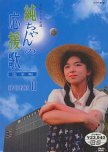
Esta resenha pode conter spoilers
'Nice Play'
"Jun-chan no Ouen-ka" is my fourth asadora. I chose the drama since the fansubber had just finished subbing it. You can find the subtitles over at d-addicts by the way. "Jun-chan" was different from the previous asadoras I watched. The key difference being that Junko (played by Yamaguchi Tomoko) is an unambitious heroine. This is not bad, but it does mean that the series does not necessarily have a goal it's working towards. Junko instead focuses on taking care of her family through various ways. The drama therefore feels like more of a family/slice-of-life drama. I liked this kind-of easy-going pace, but I wasn't exactly on the edge of my seat after each episode to find out more.Besides family, "Jun-chan" has a secondary focus of baseball. It links to several of the series major characters and is also the source of the more emotional moments. I'm sure the third to the last episode will get you. Junko's brothers, Akira and Yuta, are the main ballplayers of the series. They are also two of my favorite characters. There is a slightly awkward transition from where they are played by child actors to adult actors. However, I thought the adults were stronger actors so that makes up for it. I particularly liked the adult Yuta (played by Karasawa Toshiaki).
The main storyline in "Jun-chan" is perhaps the romance between Junko and the Japanese-American, Shuhei (played by Takashima Masahiro). I thought these two had strong chemistry and they manage to stay interesting even after getting married. Much of the latter half of the drama is about them working through their marital and childrearing problems. Considering their strong, stubborn personalities, I liked that the writers didn't opt for a "happily ever after"-type marriage.
Now addressing Junko. She's a very low-key heroine in some ways. Junko gets most of her satisfaction out of life by helping others whether it's doing the housework or supporting her family by working at a diner and later an inn. However, she is not portrayed as being perfect. Junko has a bit of a martyr complex and is often stubborn. Her family and loved ones appreciate what she does, but aren't afraid to call her out every now and again. As a heroine, I found Junko very enjoyable to watch. I'll remember her for her bright and never-ending perseverance.
To close out, I chose to title this review "Nice Play" after a pivotal moment in the series. It's used in baseball to indicate "good game" basically. However, one character points out that this could apply to life itself. Junko, her family, and friends each had a "nice play." I enjoyed nearly every minute of the series and I liked that the ending indicates that their lives will go on after the story.
Esta resenha foi útil para você?
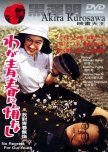
Understated
I had no idea just how many films Akira Kurosawa directed until I stumbled upon this film. I have only seen two, Rashomon and Yojimbo, so far. These two films and his other well known films all seem to be historical dramas or samurai epics. So No Regrets for Our Youth really stuck out to me. It is set during the pre-war period up to the end of the war (1933-1945). Since it was released in 1946, this could almost be considered contemporary.The film is mostly told through the point-of-view of Yukie Yagihara (played by Setsuko Hara). She is the daughter of college professor ousted from his position due to his views on fascism, sparking anti-militarist student protests. A lot of Hara's acting is subtle, such as her falling for one of the protestors, Noge. She never states her feelings; you can tell from her facial expressions and actions. Hara is one of those actresses that always amazes me. Sometimes I don't understand why she did this or that, but at the end of the film it always clicks.
All in all, No Regrets for Our Youth is a wonderfully slow-paced film. Its portrayal of the anti-war efforts of Japanese people was something I never thought of. Kurosawa's decision to make this film so soon after the war is also interesting to me as it shows his convictions. It's too bad that this film isn't more well known, but I understand. It isn't a samurai epic or anything genre changing. However, it's an honest, understated picture about what feels like real people amidst political turmoil and war. And Hara is an amazing heroine from beginning to end.
Esta resenha foi útil para você?

Not the best from Kathryn and Daniel
My first Filipino movie was "She's Dating the Gangster" followed by "Can't Help Falling in Love." Now I LOVED these movies, though I felt SDtG had a couple plot holes. So I'm obviously going to have high hopes for any Kathryn Bernardo & Daniel Padilla movie. Unfortunately, "Crazy Beautiful You" did not live up to my hopes. Don't get me wrong, I thought it was enjoyable but it did not have any sort of brilliance that the other two films I mentioned had. This is just another run-of-the-mill rom-com full of plot inconsistencies.First, Kathryn and Daniel were great. Chemistry top-notch as always and I'm still looking forward to watching their other movies. However, the plot of "Crazy Beautiful You" is just all over the place. Kathryn's character Jackie has an about-face too soon into the movie. They should have played her being a rebellious brat more. Kiko's (Daniel) family dynamics are interesting, but handled too haphazardly. Once his annoying brother Marcus is introduced, Kathryn's character development in thrown out in order to focus on a pseudo-love triangle.
I think the overall message about the importance of family is great though the delivery is somewhat muddled. Additionally, I liked the way they handled being selfish/selfless. Selfishness is bad of course, for the most part others' feelings should be considered. However, being selfless is also bad but in different ways. No one should try to take everything on by themselves. This message I think was just as important in the movie. I recommend "Crazy Beautiful You" to all Kathryn & Daniel fans since I think they're great no matter what. But if this is your first Filipino movie, I suggest watching the two I mentioned up top first.
Esta resenha foi útil para você?
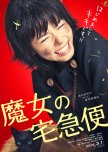
Fun fantasy film
I want to say first that this movie is not a remake of the Miyazaki Hayao film! They are both based on the same children's book by Eiko Kadono (who also makes a cameo in the movie). Keep this in mind if you decide to watch this.Though nowhere near the brilliance of Miyazaki's classic, it manages to stand on its own. It suffers from a few issues common with live-action adaptations. The CGI animals for instance, especially the baby hippo. I found it distracting for some reason. In some scenes it was a puppet, others full CGI. Other than that, the film's effects were pretty good such as Kiki flying. As for actors, I absolutely loved Koshiba Fuka (Kiki) and Miyazawa Rie (Kiki's mother). They were great in my opinion. Tombo's (Hirota Ryohei) character took a minute for me to warm up to. I found him very abrasive at first, though I liked him by the end of the movie.
Though not a certifiable hit like the 1989 movie, this film was fun overall and a perfect pick for children. I was touched during several moments and even cried during the climax. Watch this only if you're willing not to compare it too harshly to Miyazaki's movie (though I also realize comparisons are always inevitable).
Esta resenha foi útil para você?

